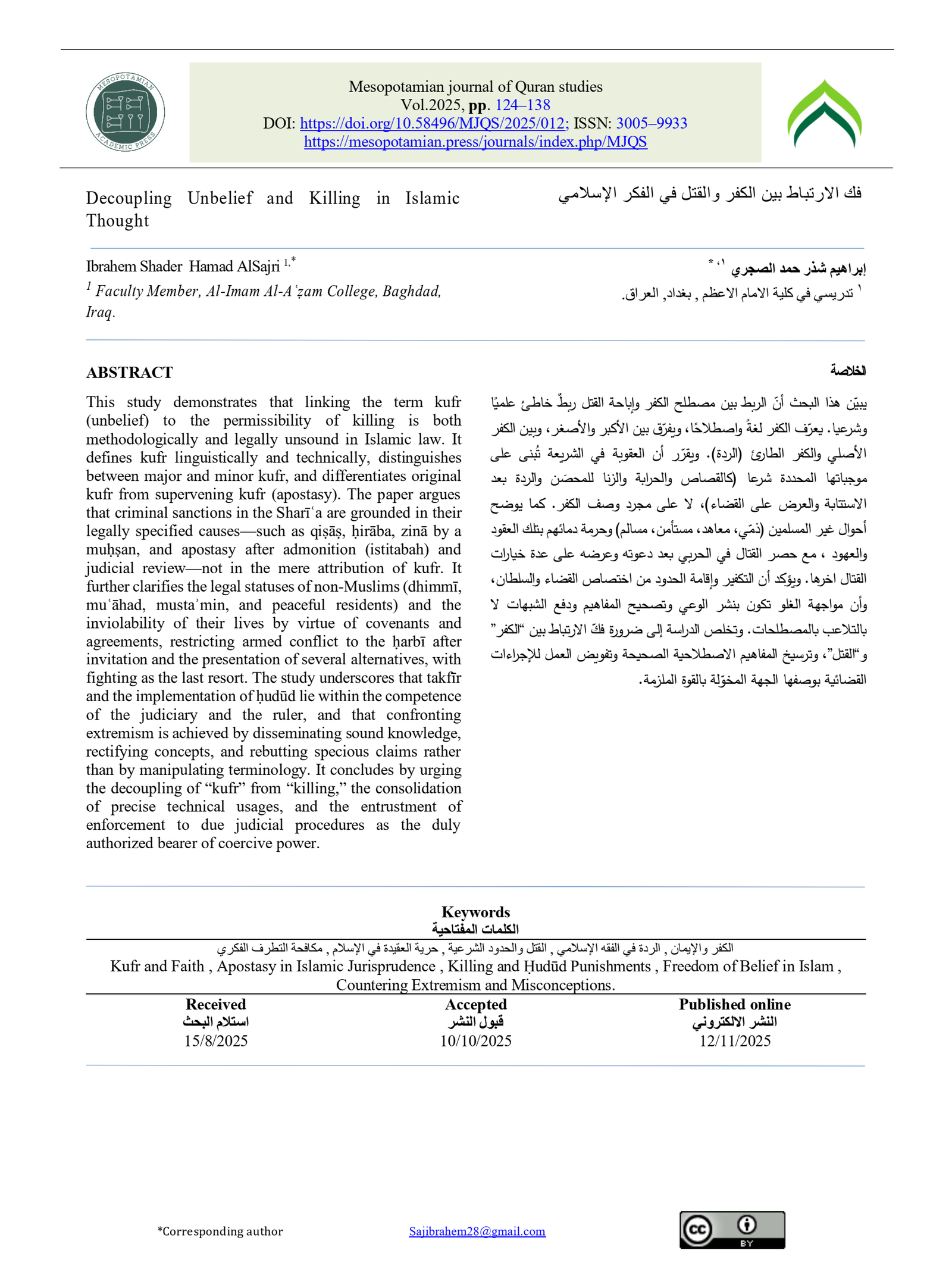Decoupling Unbelief and Killing in Islamic Thought
Main Article Content
Abstract
This paper examines the recurrent conflation between the Qur’anic-legal concept of kufr (unbelief) and the permissibility of killing, arguing that the linkage is conceptually and normatively false. Drawing on Qur’anic verses, authentic Prophetic traditions, and classical juristic discourse across the madhhabs, the study defines kufr linguistically and technically, distinguishes its major/minor manifestations, and classifies unbelief into original kufr and contingent kufr (apostasy). It demonstrates that criminal liability in Islamic law is tethered to specific, adjudicated causes—such as qiṣāṣ, ḥirābah, zinā by a muḥṣan, and apostasy after due process—and not to the mere status of unbelief. The paper further maps the legal statuses of non-Muslims—dhimmī, muʿāhad, mustaʾman, and pacific non-belligerent—underscoring their inviolability under covenantal protections, while delimiting combat to the ḥarbī after prior invitation and options. Methodologically, it stresses that takfīr and ḥudūd belong to state authority and the judiciary, not private actors, and that countering extremism requires conceptual clarity, education, and removal of shubuhāt (doubts), rather than erasing foundational terms. The conclusion calls for decoupling “kufr” from “killing,” restoring precise legal language, and reinforcing institutional due process as the legitimate locus of coercive power
Article Details
Issue
Section

This work is licensed under a Creative Commons Attribution-ShareAlike 4.0 International License.
Deprecated: json_decode(): Passing null to parameter #1 ($json) of type string is deprecated in /home/u273879158/domains/mesopotamian.press/public_html/journals/plugins/generic/citations/CitationsPlugin.php on line 68
